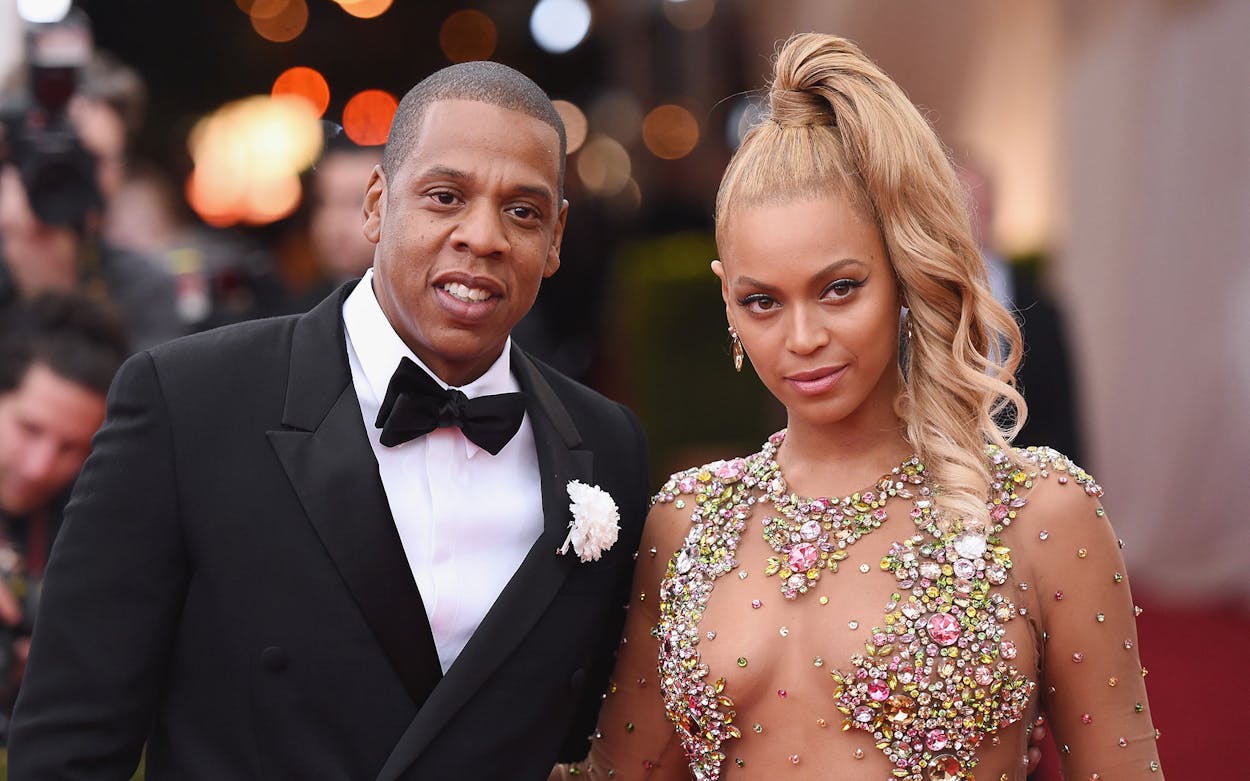Beyoncé may not have invented the surprise-drop album release, but she definitely perfected it. Before Queen Bey dropped her eponymous “visual album” in December 2013, other superstar artists had released albums with little-to-no anticipatory fanfare, but those releases—think Radiohead’s In Rainbows and The King of Limbs, which came out a few days after being announced—didn’t set a precedent. When Beyoncé released the fourteen songs, each accompanied by a fully realized music video, in the middle of the night in December 2013, she created a cultural moment that defined the era. Beyoncé quickly became the fastest-selling album in the history of iTunes, sold 600,000 digital copies in one week, and made the top of year-end lists at Billboard and L.A. Times in the last days of 2013—all without being available on streaming services. It was an unprecedented way to take over the cultural conversation—it demanded attention from anybody who was interested in what was happening in music in 2013.
After Beyoncé, releasing a new album without any prior notice became a power move for the biggest artists in music. U2, Drake, Bjork, Dr. Dre, Frank Ocean, and James Blake all adopted the surprise album release as a way to build hype by eschewing the traditional hype cycle. For the most part, it worked—but the diminishing returns for surprise-drops in 2018 suggests that maybe the tactic has run its course.
Last weekend’s premier unannounced new album was, of course, Everything Is Love, the first collaborative album by The Carters. It’s a stunning statement from Beyoncé and husband Jay Z, bringing them both into each other’s musical worlds on a full-time basis for the first time: Bey raps as Jay spits tender love; they make a semi-convincing case that succeeding within capitalism might be a revolutionary act if you come from their humble origins; they react to the headlines of the world in ways that our most vital artists should; Beyoncé references Snoop Dogg’s hook to “Still D.R.E.” (which Jay ghostwrote way back in 1999) on the Houston tribute “713.” A triumphant drum stomp rings out in “Lovehappy” while the two trade lines in the verse.
All of these are thrilling moments on one of the most important albums of the year, but it would have been thrilling to look forward to them. But because Everything Is Love got its surprise release on Saturday afternoon, we had to take it all in at once—on the same weekend that we also had to take in Nasir, the new release from Jay’s one-time rival Nas (executive produced by Carter family frenemy Kanye West), and just a few weeks after Kanye’s double-header of Ye and Kids See Ghosts, and a couple of months after The Weeknd’s My Dear Melancholy, and Travis Scott and Quavo’s Huncho Jack, Jack Huncho.
That’s a lot of music to process and react to, and the nature of the surprise release means that it isn’t just a new record to rotate into your playlists for the week. The surprise album is a move from an artist that says that they demand your attention. There were no pre-release singles from Everything Is Love to give us an idea of what the album might sound like, or to help us form an initial impression of where they were going musically. There wasn’t even an opportunity to speculate and wonder what we might get from an album-length collaboration between two of music’s most significant artists.
None of that is top of mind spinning Everything Is Love, but what we hear is only part of how we engage with music. It isn’t strictly a relationship between the listener’s ears and the artist who made it—we connect with it emotionally not just on a purely sensory level, but also because of its context. But there is and was little context for Everything Is Love. In 2013, Beyoncé brought pop culture to a standstill: 600,000 people who wanted to engage with the album did so at the same time. That hasn’t been how people have responded to Everything Is Love. There are probably a few reasons why: its first few dozen hours were exclusive to the streaming service Tidal, which Jay and Bey co-own; it dropped when the woke corners of the Internet that usually loudly show up for Beyoncé were avidly following news of child separations; stopping everything to listen to Everything Is Love meant people may have had to move on from the other recent surprise-release albums before they were ready. But the end result is that, instead of engaging with the album on a range of emotional levels provided by a more traditional method of promotion and release, we got forty minutes of music without much context.
In 2013, that was a revolutionary way to introduce us to the latest work by one of music’s superstars. Five years later, it feels a little underwhelming. Everything Is Love‘s nine songs are spectacular, but the album’s biggest achievement might be that it makes us miss the hype Beyoncé taught us we didn’t need.








